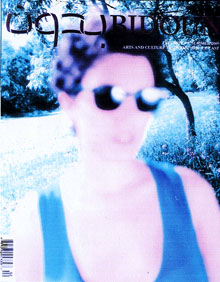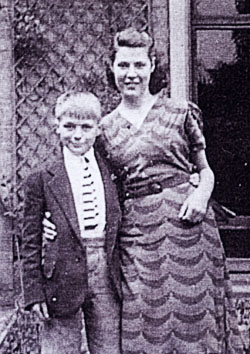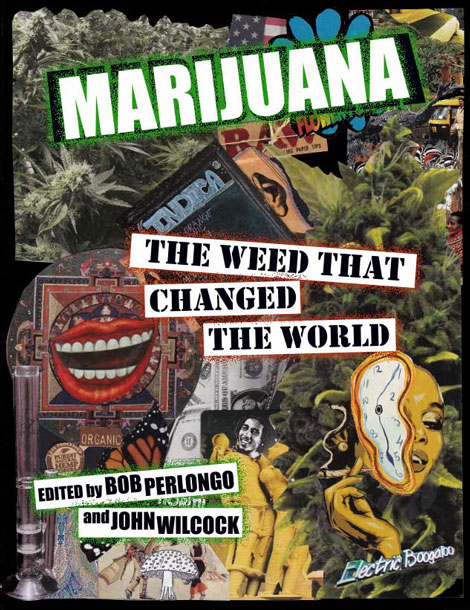
The Column of Lasting Insignificance: October 11, 2014
by John Wilcock
“If you do not change direction,
you may end up where you are heading.”
— Lao Tzu
“I asked the Zebra,
are you black with white stripes?
Or white with black stripes?
And the zebra asked me,
Are you good with bad habits?
Or are you bad with good habits?
Are you noisy with quiet times?
Or are you quiet with noisy times?
Are you happy with some sad days?
Or are you sad with some happy days?
Are you neat with some sloppy ways?
Or are you sloppy with some neat ways?
And on and on and on and on and on and on he went. I’ll never ask a zebra about stripes…again.”
— Shel Silverstein
“I suppose I have a really loose interpretation of ‘work,’ because I think that just being alive is so much work at something you don’t always want to do. The machinery is always going. Even when you sleep.”
— Andy Warhol
|
|
The Quarterly Magazine Bidoun contains 18 interviews on the subject of interviewing in its current issue. The interview with me by Zachary Hooker will occupy two columns.

There were four editors on the masthead of tile first issue of the original Interview magazine: Gerard Malanga, Paul Morrissey, John Wilcock, and Andy Warhol. Bob Colacello, who would edit the magazine some years later, would refer to Wilcock in particular, a journalist of British extraction who had dropped out of school at sixteen to work in the newspaper business, as an “aging hippie publisher.”
A lifelong reporter, Wilcock worked for papers in London, Los Angeles, and Tokyo. In 1955, he cofounded the alternative weekly the Village Voice, where be wrote a column called “The Village Square” and was known to spar with a young, overly self-confident Norman Mailer. He left the Voice after ten years to edit a rival publication, the East Village Other, and eventually went on to publish his underground tabloid, Other Scenes.
[Bidoun, 195 Chrystie Street, New York 10002-1296]
ZACH HOOKER: First off, could you tell me about starting Interview with Andy Warhol?
JOHN WILCOCK: Well, I was spending a lot of time around the Warhol place. Literally, at least three or four full days a week. And one day, I had got back home, and Andy called me up—Andy only called maybe six times, ever—and on this occasion he called up and said… well, he was bitching about how they couldn’t get this million dollars from Hollywood to go out and make this movie, this professional movie. And I’ve a1ways had a hand in the alternative press, so I said, “Oh, Andy, you know all my friends do underground papers. why don’t you focus on doing a paper instead?” So he paused for a bit and then just hung up, but he called back about two minutes later and says, “What kind of paper?” And of course, being Andy, he wanted to do a flim paper of some kind. So he decided he wanted to so a paper called Inter-VIEW, “view” in all caps , “Inter” in upper/lower case. And I told him, “Well, I can get you a printer for real cheap, the cheapest printer in town, and I can do the typesetting for you, We’ll split it fifty-fifty, and I’ll take care of the all the typesetting.” And we got it up and running.
![]()
“You can foot the printing bill; and I’ll take care of all the typesetting.” And we got it up and running.”
![]()
ZH: Was Andy doing a lot of interviewing then?
JW: Andy’s idea was to take his tape recorder everywhere and just tape everybody. So that’s what Interview was, to begin with. Even now it runs a whole lot of those kind of interviews, but originally that’s all it was. Completely informal.
ZH: Just whatever made its way onto Andy’s tape recorder…
JW: Yeah. In the same way, his movies were just whatever happened in front of the camera. Originally, he’d just set up the camera and wouldn’t move it. Whatever happened in front of the camera was what the movie was. I mean, I remember the first time the camera ever moved. He was doing a movie about Edie—out at her apartment near Park Avenue, I think—and at some point she got out of bed and went to the refrigerator, and the camera moved and everybody jumped and ran out of the way… They had never seen the camera move. It was great. I loved those years. It was fabulous.
ZH: Did you ever interview Andy?
JW: No, because one specifically did not interview Andy. Because if you asked Andy questions he’d just reply, “Really?” or, “Oh, what do you think?” Or something like that. He and Bridget Berlin would get in some long conversations from time to time, but if you were hanging around the Factory around that time, you learned not to ask questions—not of Andy, anyway. You asked other people—and that is basically how my book The Autobiography & Sex Life of Andy Warhol came about. But you didn’t ask Andy questions. To be a steady figure in that scene, you had to produce something, be creatively productive. It’s like his movies just keeping the camera steady on a few people—after a while there’s just this incredible pressure to do something. We were filming out in Brooklyn Heights this one time, for example, and Edie was on camera and just plain ran out of things to say and threw her drink at a light, and the light explodes and everything goes black, and that’s how the movie ended…
The book I made is called The Aubiography & Sex Life of Andy Warhol but there isn’t any sex, and there certainly isn’t any autobiography. I was talking to Charles Henri Ford, and tried subtly to bring up sex, and all he would say, enigmatically, is that Andy was a receiver. And far, far from any sexual connotation, he was exactly right. Andy just absorbed—you had to feed him things without expectation of any reaction. He loved input..
ZH: The Autobiography is really difficult to get a hold of these days.
JW: It came out as a five-dollar book in 1971 and now it is about $200 used on Amazon. A new edition is possible, and I hope it happens. It’s historically valuable for one reason alone—it’s twenty of the people really close to Andy at the end of the 60s really trying to explain him … And while we are talking about interviews, those are sort of interviews, but they’re not really. They’re conversations.
ZH: So all the interviews, or conversations, in that book, were they just something you had sitting around, or was it a preconceived project?
JW: I never bad any intention of really doing anything more than chronicling this stuff for kicks. But when the first Andy retrospective came up at the Whitney, about 1971, I realized all these talks would make a nice book, so I rushed it out. And the printer said it never paid for itself, so I never saw a penny from that. The thing has been in limbo since.
|
|
ZH: What made you start carrying a tape recorder around the Warhol scene in the first place?
JW: Well, I was spending so much time around the Warhol scene, and I couldn’t figure out why certain things were happening, so I started to talk to people and tape-record them. I remember, I was up at Andy’s at the time, and on the way home I’d always read the New York Post, and I’d read Leonard Lance’s column about some Warhol happening, and it would always be something I knew never actually happened. So I’d call Paul Morrissey and ask, “What’s this in the Post all about?” And he’d say, “Oh, Leonard Lance calls us up every Wednesday, and we always make up something exciting for him.” It was that kind of stuff… like Andy would bring a horse up into the Factory, or set up the camera right in front of the door so anyone going or leaving had no choice but to be in the movie. Stuff you could never get a straight answer about if you asked anyone, but stuff that everyone talked about. So I started to haul around this recorder, to record the banter. Like I said, I think of them more as conversations than interviews. All the people I have talked to, for the most part, I’ve always felt on equal terms with. Even someone like Leo Castelli, the art dealer, who had people like Lichtenstein, Rosenquist, Johns around him… I knew just as much about the scene as he did. I think it’s very important never to be in awe of who you are interviewing. I think that strategy has fallen by the wayside lately. It’s the attitude you need to have, though. Even when I talked to Marilyn Monroe or Marlene Dietrich, for example… it’s hard to shake the celebrity reverence, the awe, but I know that they are good at what they do, and I’m good at what I do, too. So there’s something mutual there.
[the second half of this interview will occupy next week’s column]
Bakewell (part 2), its mayor, and its pudding…
National Weed (1974, issue #3)
it’s here…



